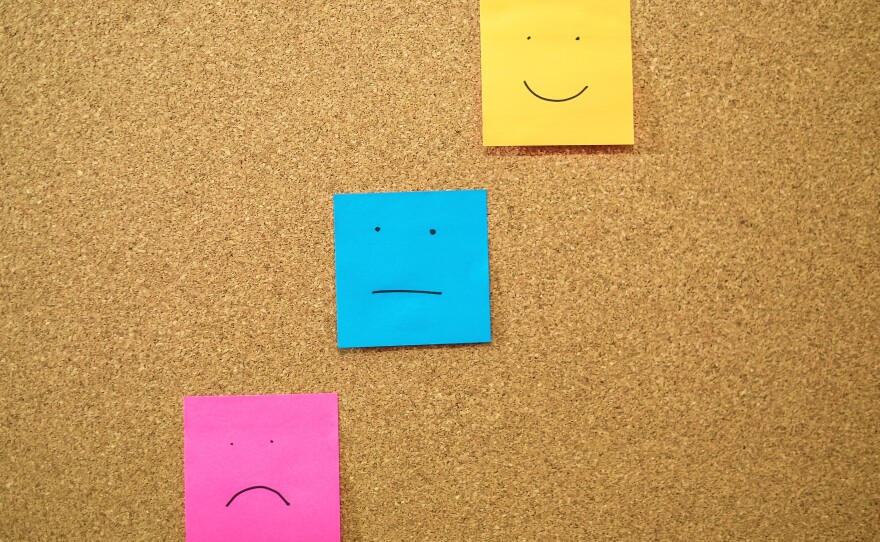Morning Edition listeners could not have been surprised: NPR gave them lots of heads up that new theme music was coming this week, the first change since the show went on the air 40 years ago. And the music is actually better described as "new-ish" than "new."
Listeners had strong reactions, nonetheless; they've sent some 400 emails so far (to Audience Relations and the Public Editor's office) and fired off so many tweets that the story became a "Twitter Moment" on Monday.
I call it "new-ish" because some of the familiar strains from BJ Leiderman's original creation are still woven throughout. Overall, the theme is more upbeat, with more percussion, some of it electronic. But Adam Ragusea, who broke down the composition in minute detail for the public radio trade publication, Current, deemed it as more of a new arrangement than entirely new music.
Listeners who have awakened five times a week for 40 years with Leiderman's comforting and schedule-setting earworm can perhaps be forgiven for having a hard time adjusting to this change, or any change. It's like hearing your favorite band in concert after having their hit single on repeat for years; one tiny note played differently sounds out of place.
The vast majority of the reaction has been negative, but that may only mean that those who are motivated to write are those who are unhappy — which is typical in the case of changes. The complaints have channeled Dr. Seuss ("I do not like the new theme music! I do not like it one bit. I would not listen to it on a plane or in a car or on a train....you get it.") and "New Coke."
Some listeners have resolved to power through. ("I hear it takes 60 days to break or make a habit. Today, May 7 is day #2 of your revised musical Morning Edition intro. So far, it rankles my brain.")
A couple listeners suggested that the more energized version reflects badly on NPR's credibility. ("I believe the new theme sensationalizes the news that is delivered and goes against the values that NPR represents when bringing the nation the news in an unbiased, non-sensationalized, and straightforward form.")
Many have sent a variation on the question: "Why change something, if it ain't broke? I've taken comfort in hearing the theme music since 1983. It's like an old friend and in a world constantly changing, it's nice for some things to remain the same."
Kenya Young, the show's executive producer, told The New York Times that the music is designed to attract a younger, more diverse audience and reflect the show's increased emphasis on news, all changes that have been underway for some time now at both Morning Edition and All Things Considered. These changes, too — particularly a more casual tone from the hosts and interstitial music between stories that reflects current trends — have been hard for some in the audience to adjust to, based on our inbox. But to stay stuck in the past is just as risky for a news organization like NPR, which needs to find ways to adapt to changing times while not alienating the listeners who got it where it is today.
Will the new theme have the staying power of the old one? Either way, as Nieman Journalism Lab's Joshua Benton wrote, the attention that the music change garnered points to the staying power of radio itself.
Meanwhile, Meg Goldthwaite, NPR's chief marketing officer, had this to say about all the listener reaction:
"We value the place Morning Edition has earned in listeners' hearts and understand the music is the soundtrack to their morning. While some people embrace change, we realize it's hard for others, especially when it means adjusting part of a daily routine. We are grateful that our audience is filled with passionate NPR devotees who care deeply about Morning Edition, and that means accepting that some people may not appreciate the change and, being engaged listeners, they will raise concerns. We approached this musical update with tremendous respect for both our audience and the original theme. We are pleased with our new sound: it is fresh, energetic and human, like the show itself. We've heard from happy listeners and unhappy listeners – all part of the diversity of experiences that make NPR so special."
Copyright 2019 NPR. To see more, visit https://www.npr.org.






